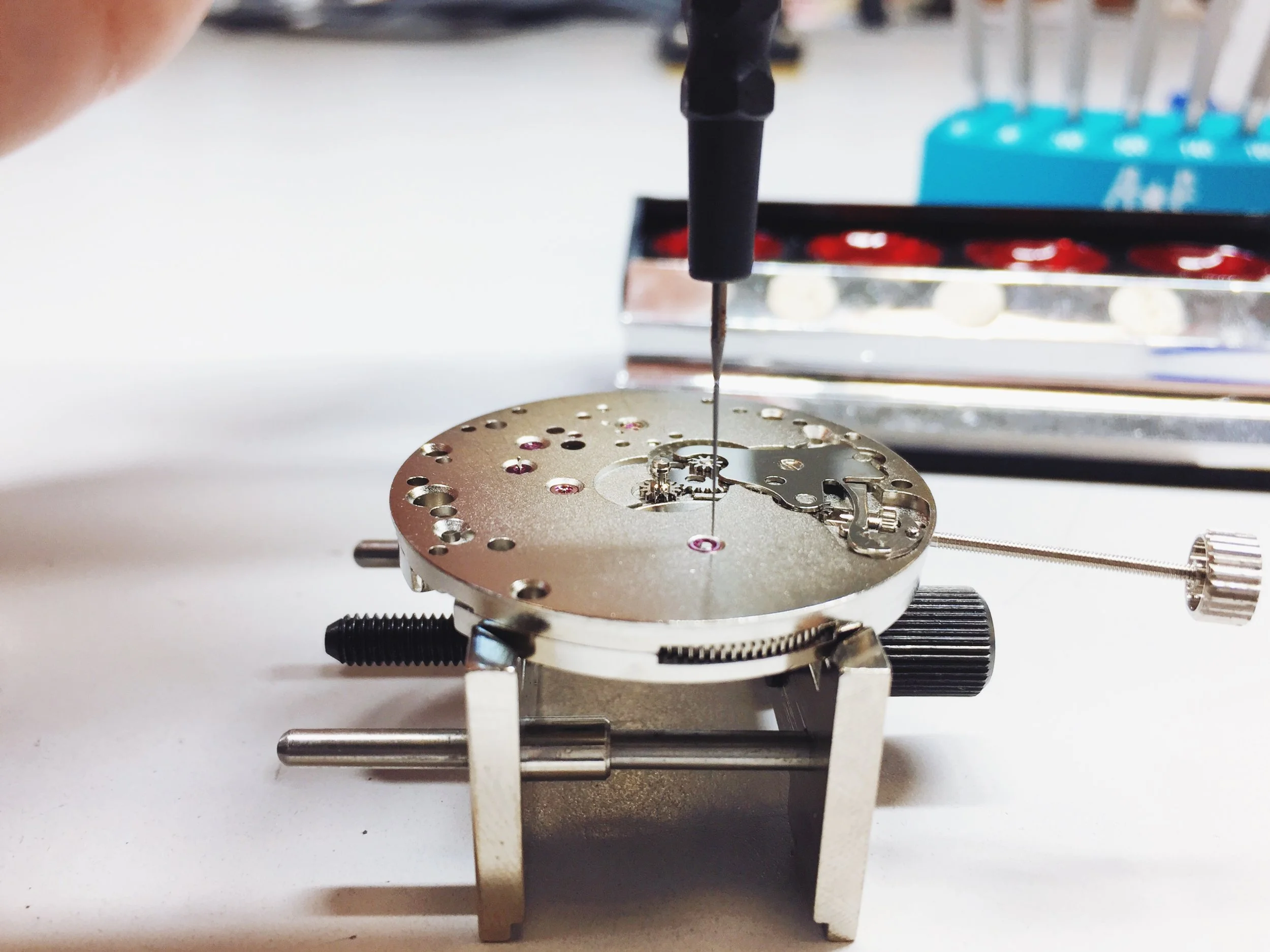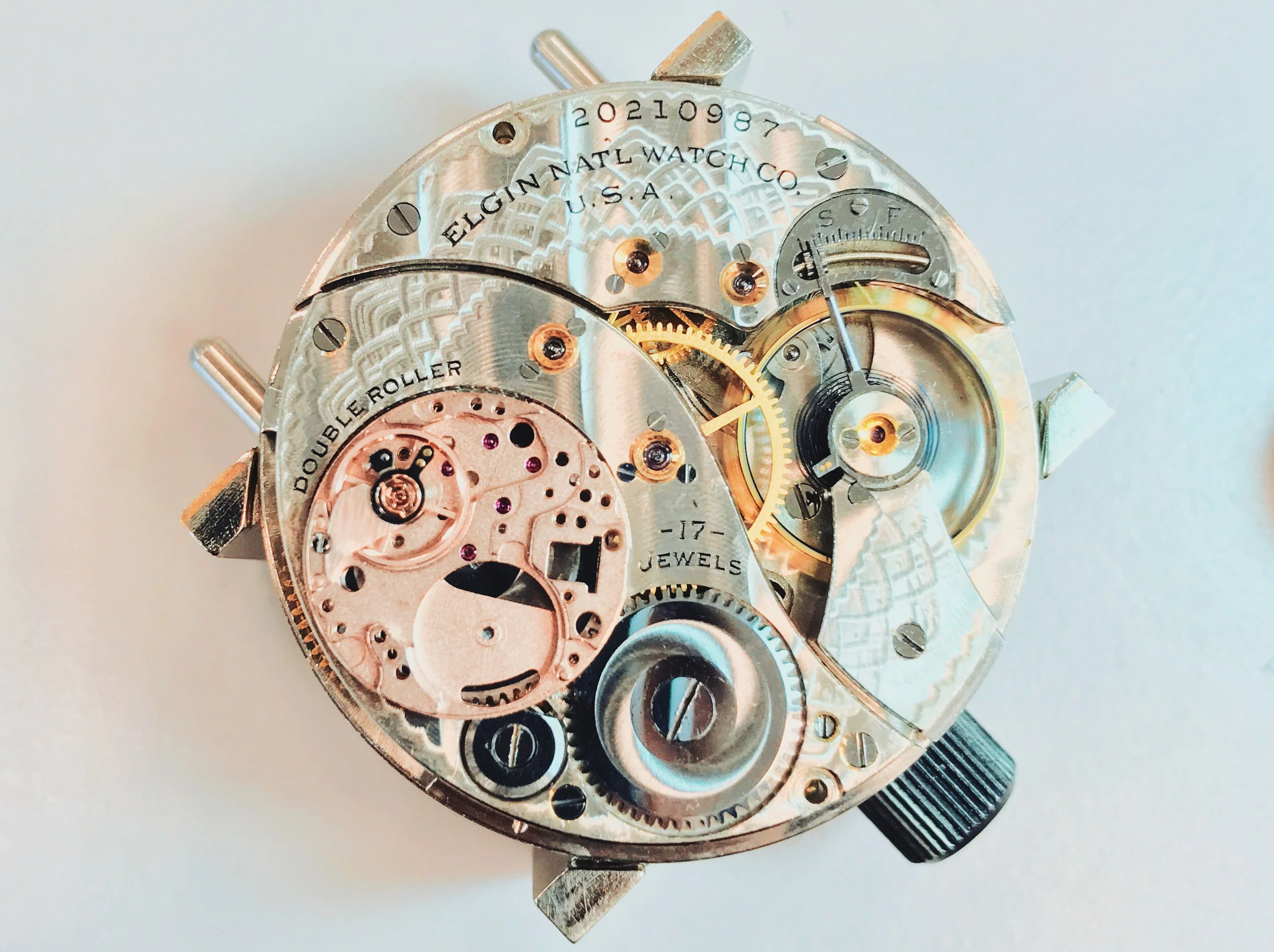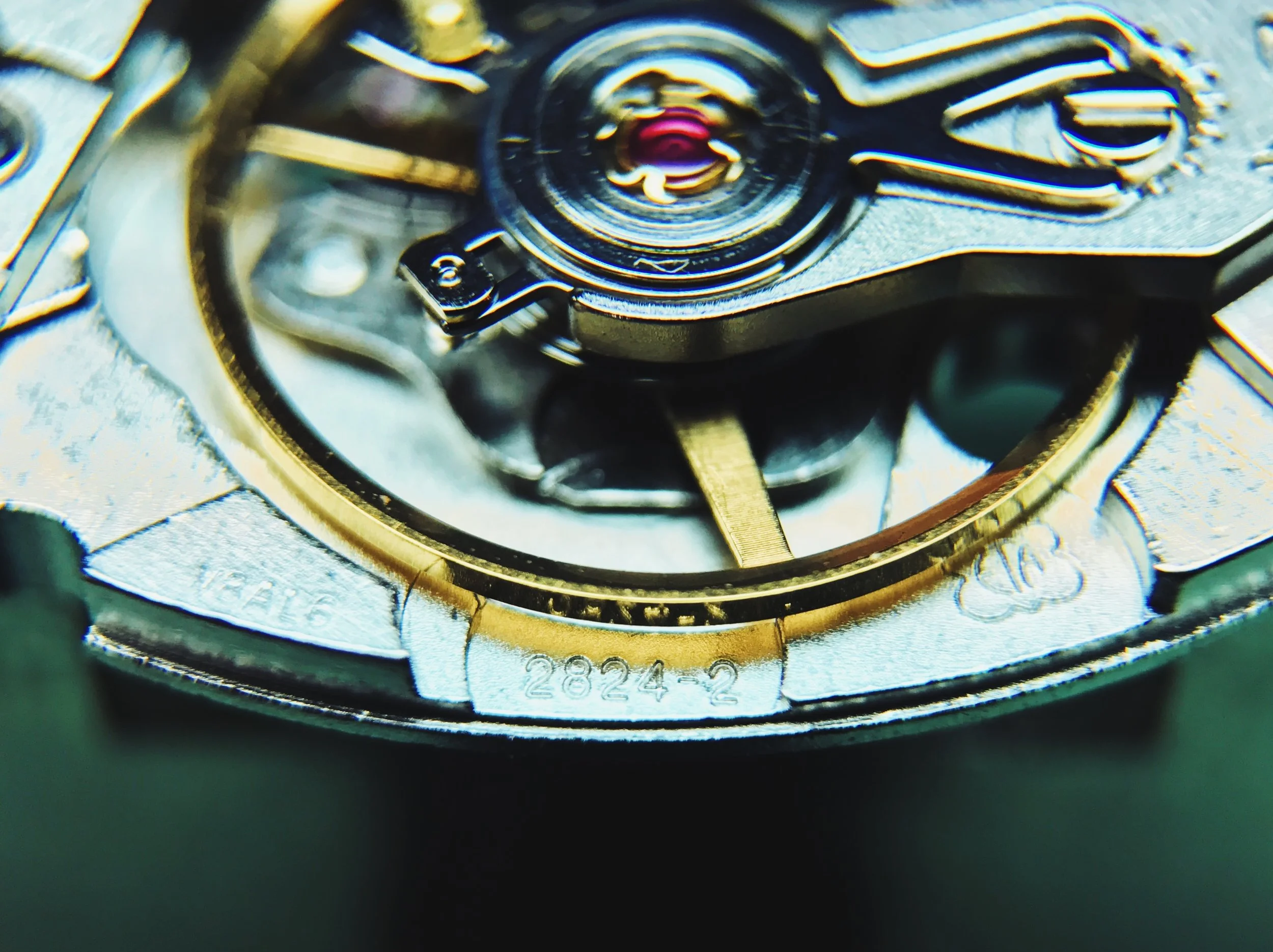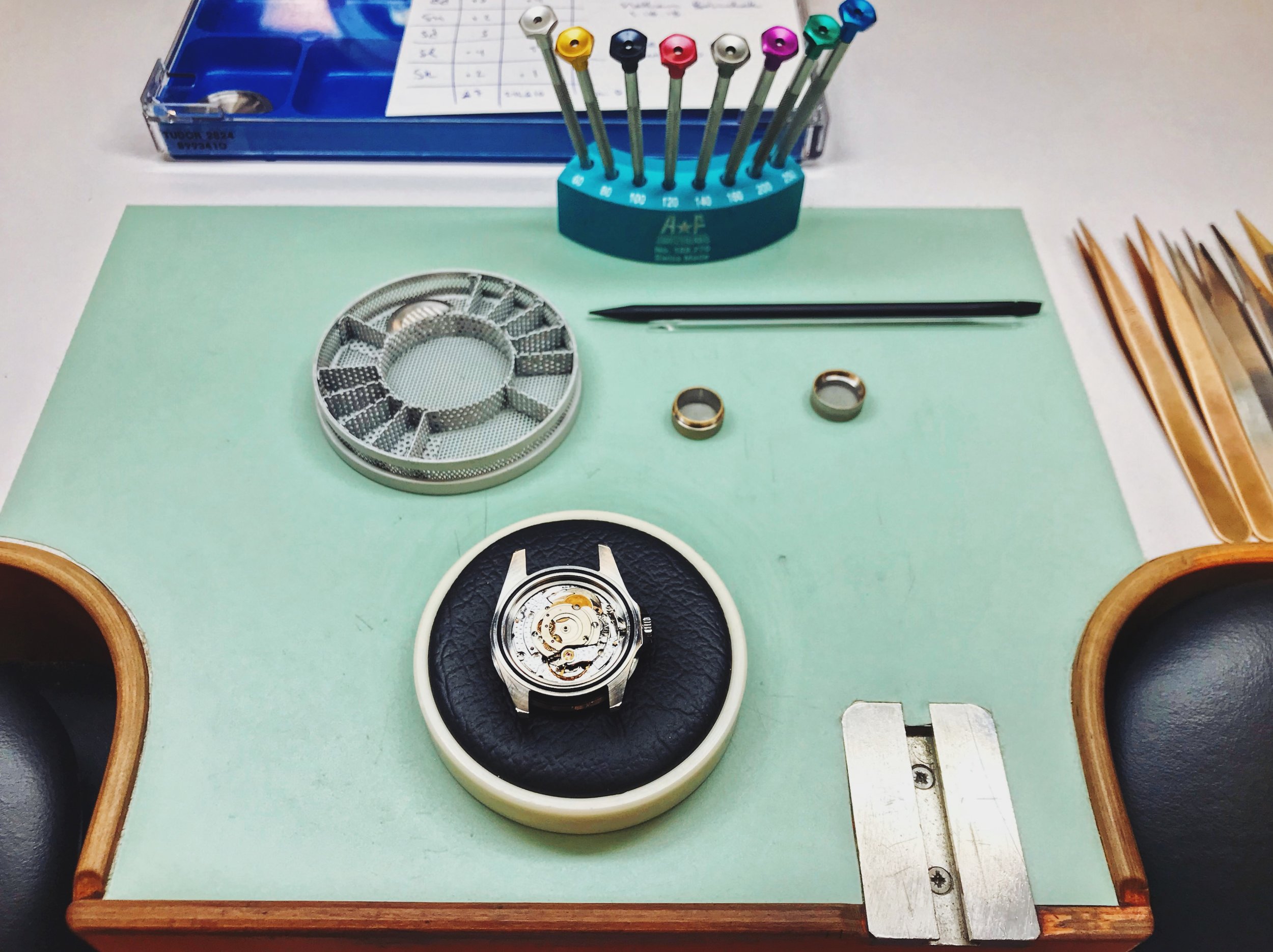Meet the Movement
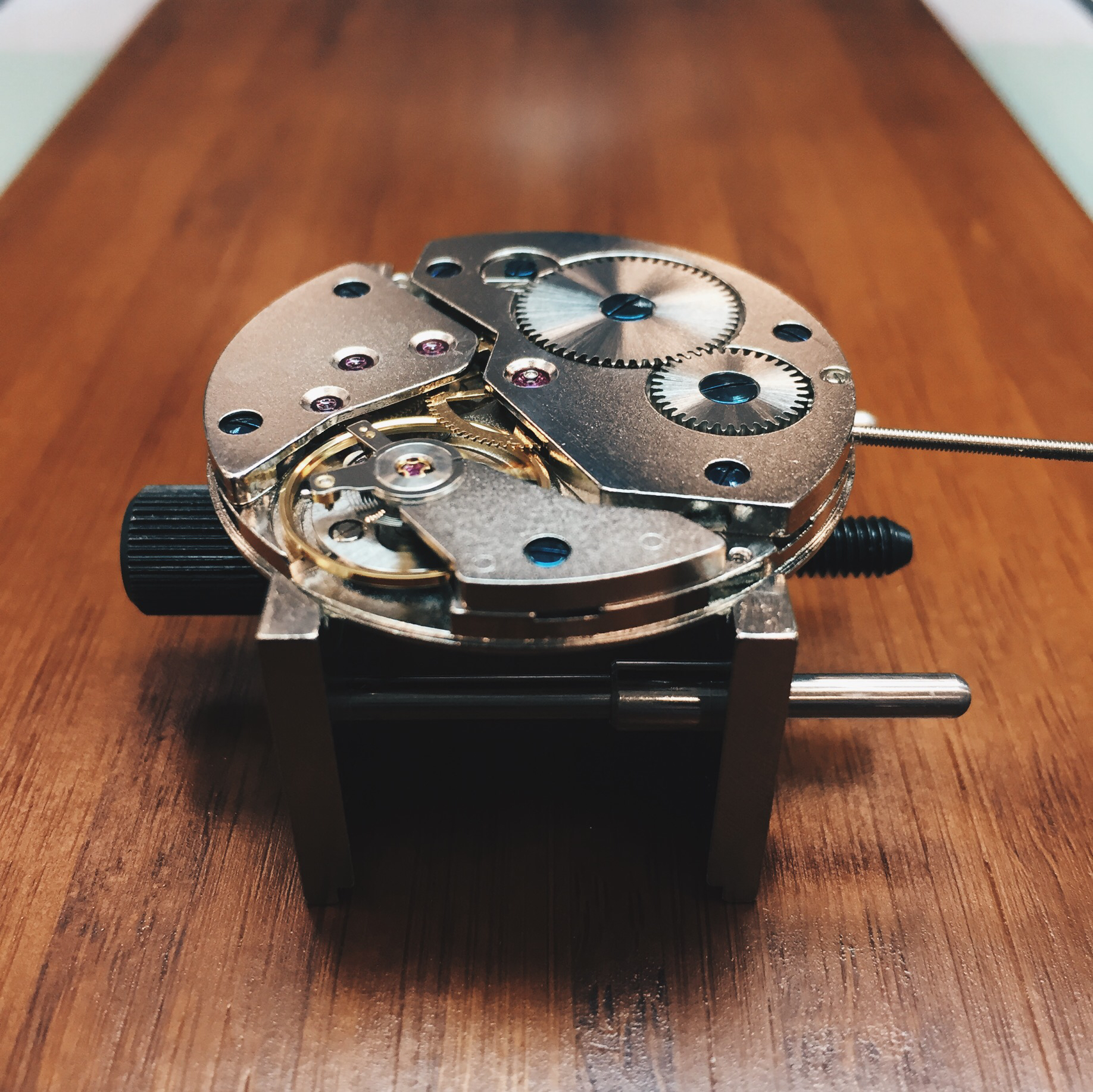
This is the ETA 6497... Or a very close approximation, at least. Consider this the watchmaker's training wheels.
We learn on 6497 clones because they have three endearing qualities:
- They're big! Big watches are in these days, and the 6497 can be found in many of them. Panerai is probably the most famous brand to use the movement (with extensive modifications, in most cases), though they can be found in mechanical watches all across the price spectrum. More importantly for a student, the big components are easier to pick up, clean and oil. Using tweezers to precisely place a jewel isn't easy!
- They're cheap. Swiss movements cost upwards of $100 a pop, but these clones are fairly inexpensive. Better not to damage something too valuable in our earliest stages of learning.
- They're good. There's a reason that the 6497 is so ubiquitous. It's a time-only hand-wound movement—about as classic as it gets. The lessons we learn on this movement will transfer directly to anything else we encounter.
Four weeks in, and we've serviced every part of this movement besides the hairspring. That means a full teardown, cleaning, oiling and reassembly, including jewel adjustment and dynamic escapement lubrication.
I'll talk a lot more about this movement in the future, so check back soon for more details!
Watchmaking student at the Lititz Watch Technicum, formerly a radio and TV newswriter in Chicago.

